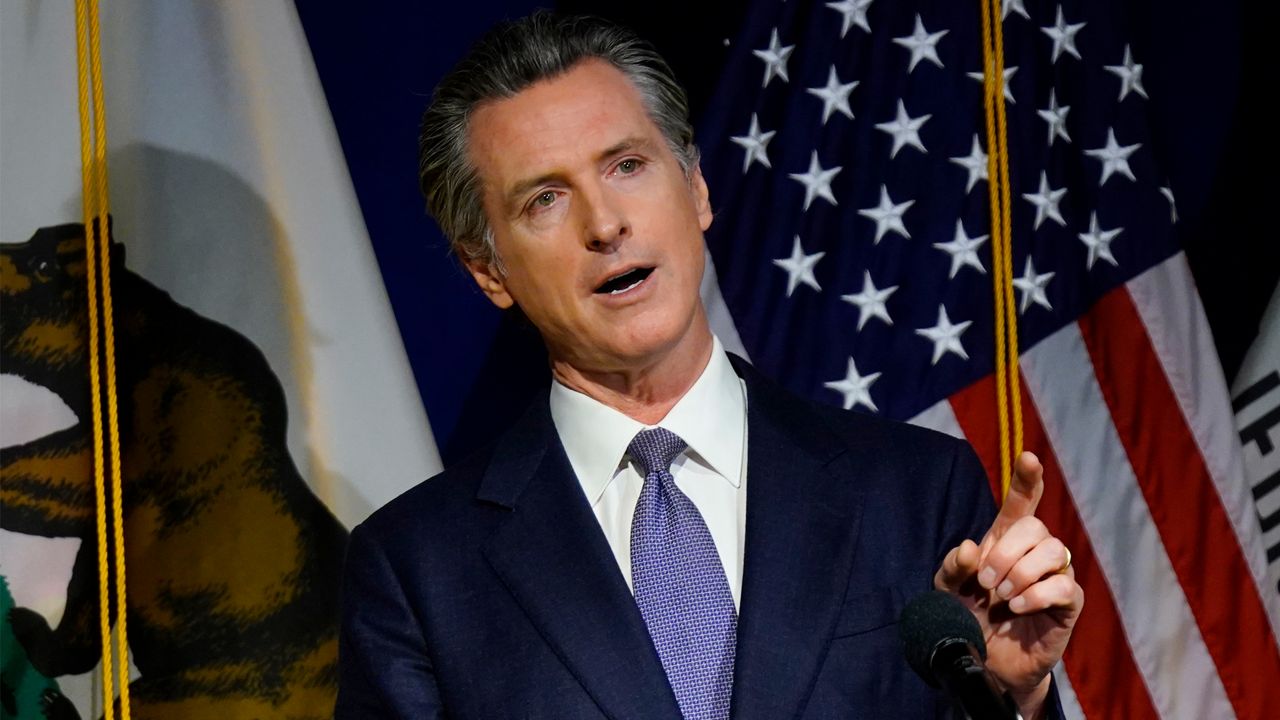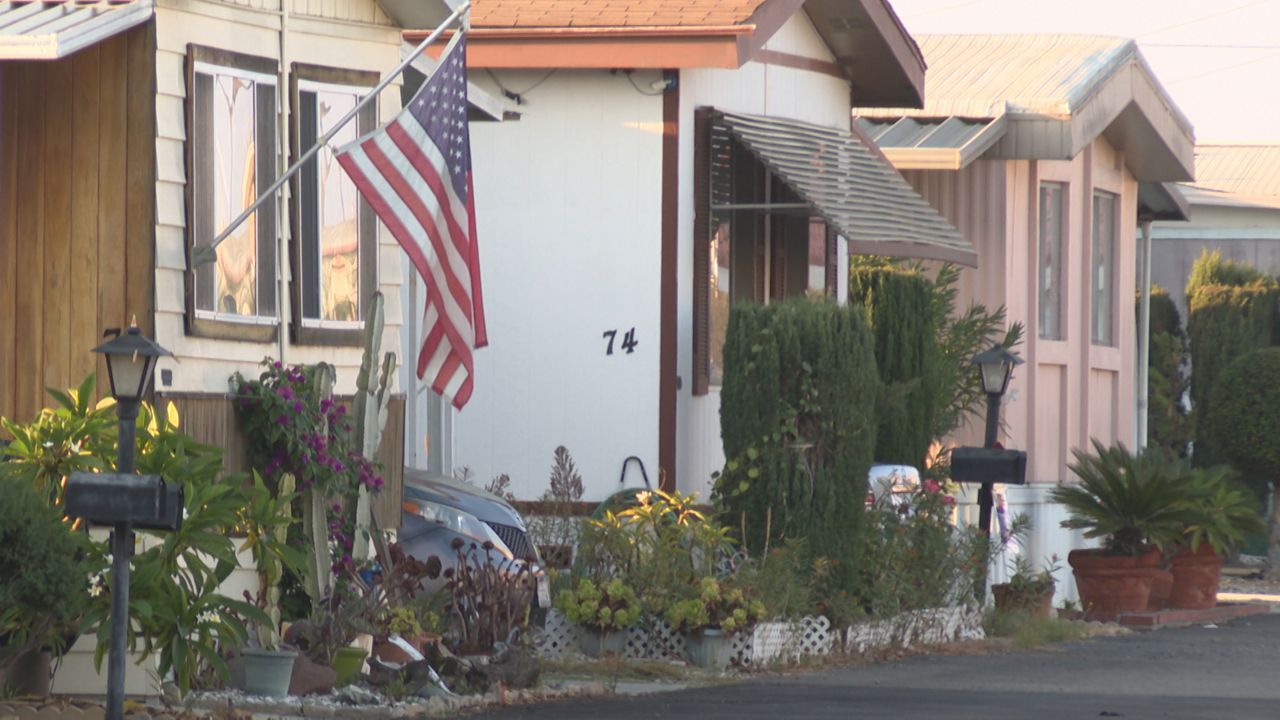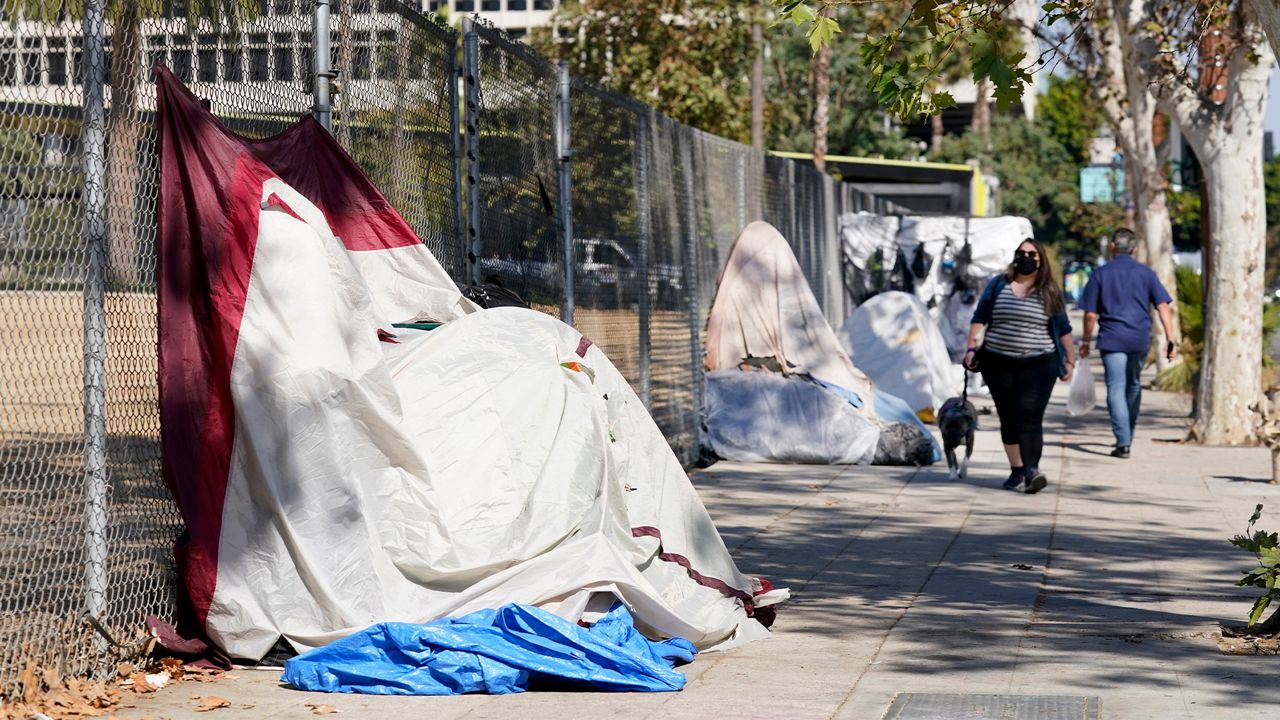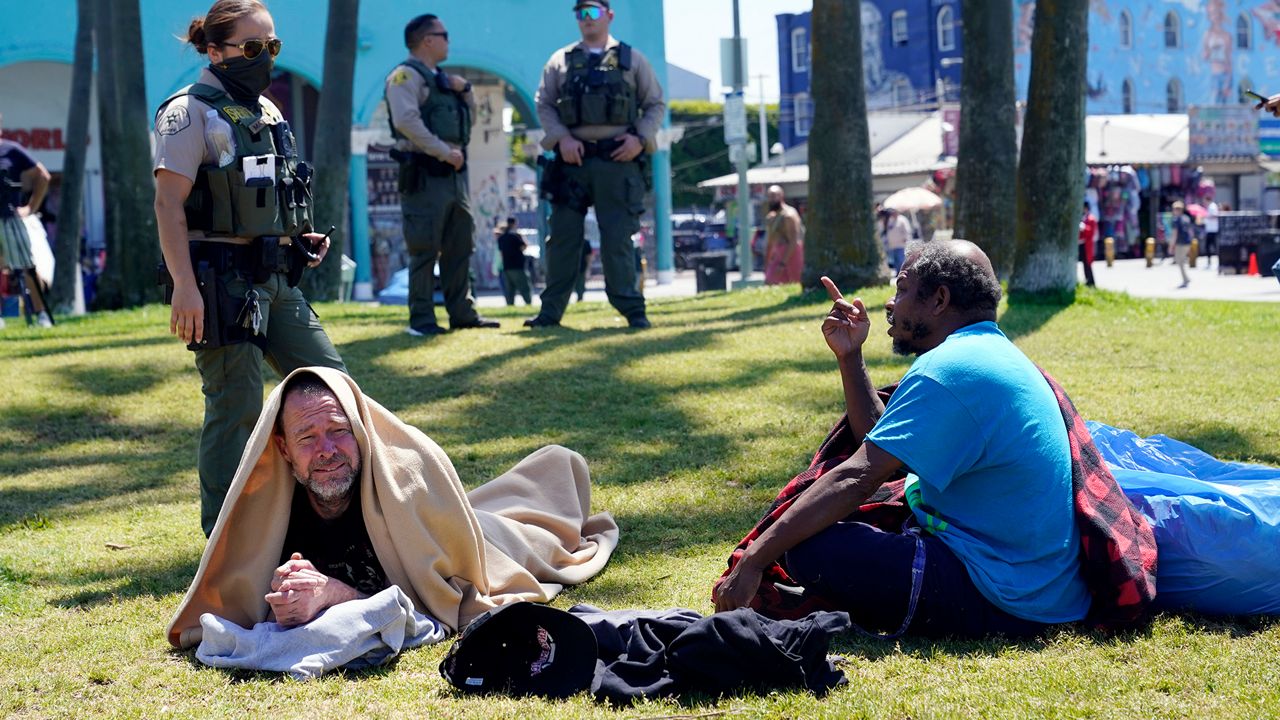LOS ANGELES – Twenty years ago Rick Dalby went to an open house at a Hollywood Hills home and fell in love:
“I found this place and put an offer in that night, and yeah, moved in a month later,” said Dalby.
From his balcony you can normally see from Glendale to Sylmar, but gray smoke from the Bobcat and El Dorado fires blocking his view is a reminder that there is nothing normal about what is happening in California at the moment.
“This morning it smelled like the fire was right next door,” said Dalby, “I could smell it really strongly.”
Dalby’s home near the top of a hill sits in a high fire risk area, which means every year in the spring he has to clear the brush away from his property or pay a fine. The information is tracked online.
“I’ve been doing the fire brush clearance I think since I moved in. I usually pay about $500 to $600 a year,” said Dalby.
But not even the inspections have been able to save Dalby from what a growing number of California residents are struggling with, being dropped from their homeowners’ insurance.
“I was given a cancellation notice and they were just, [sic] the typical reason is, we are not writing in high fire hazard areas,” said Dalby.
In the last 20 years, he has been dropped from three different insurance policies, and homeowner’s insurance is a requirement for a mortgage.
“I was able to get a new policy with Homesite Progressive, right over the phone. It was no problem. Ten months later, got the cancellation notice this spring. I was just like, oh no, I’m going through this again, it’s not even been a year,” he said.
It’s happening all across the state, but a tsunami of cancellations could be on the way, because a ban that has kept insurers from canceling policies for 800,000 homes in high-risk areas is about to expire and can’t be renewed. Insurance companies say, they’re overexposed.
“Once they start having a lot of claims within that zip code, they’ll just say, 'oh no more policies in that zip code,' or 'cancel policies in that zip code,'” said Dalby.
And with each fire, the situation gets worse.
Thirty miles away in an Agoura Hills office, Jenni Campbell, the Executive Director of the Los Angeles Region Community Recovery Organization, is going over some numbers.
“We’ve had over, almost 500 cases, over 400 cases that have come through our doors, right now we sit with 61 open cases,” Campbell said.
Campbell’s job is to help Woolsey Fire victims by trying to find organizations that will help fund what insurance, FEMA and personal savings weren’t able to cover.
“The only reason that we exist is because there are people out there who do not have the ability to recover on their own due to their lack of insurance,” said Campbell.
Since the Woolsey Fire, the number of homeowners that have been dropped from insurance and are being forced to turn to California’s last resort FAIR plan has gone up by 50 percent. Campbell, who survived Woolsey, was dropped from her insurance this month, in the middle of fire season.
“It’s touching my own life because I live where the fire happened . . . because the fire came through this area we have now had our insurance canceled through the master policy,” she said.
The solution to this accelerating problem according to Campbell, as well as consumer and insurance groups, must include having homeowners paying more.
“To me living in the hillside is definitely gratifying,” said Dalby “I’m really grateful to be here, but you have to know that there are additional expenses and hassles . . . and you have to adapt to where you live and be willing to incur in some cases extra costs.”
Dalby is fortunate and can afford those extra costs, as long as his policy isn’t canceled.








